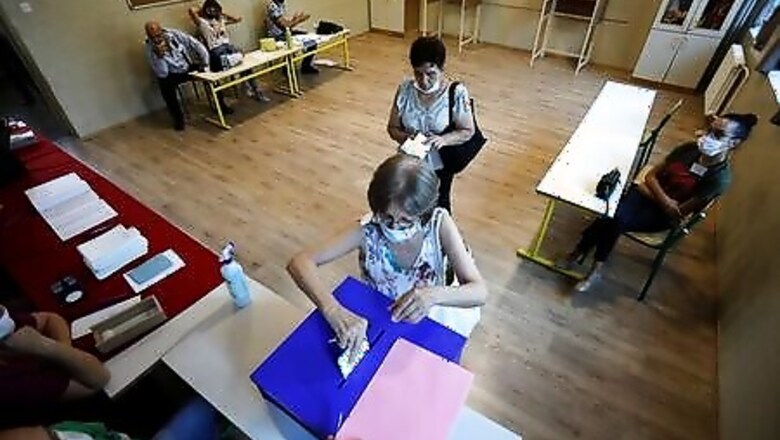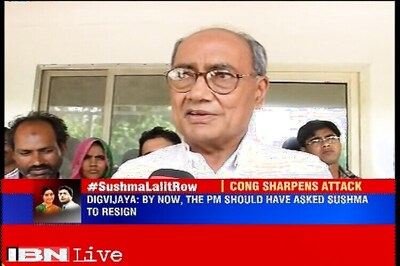
views
PODGORICA: Montenegrins started voting on Sunday in a parliamentary election in which neither the long-ruling pro-Western party nor a rival pro-Serb and pro-Russian alliance are tipped to win a majority of seats.
At stake is the political future of President Milo Djukanovic. He leads the ruling Democratic Party of Socialists (DPS) and has governed Montenegro since the start of the break-up of federal Yugoslavia in 1990 and through the dissolution of its union with Serbia in 2006.
Staunchly pro-Western Djukanovic overseen Montenegro’s ongoing efforts to qualify for membership of the European Union and was instrumental in securing its accession to NATO in 2017.
The Podgorica-based Center for Monitoring and Research (CEMI) pollster set the turnout at 54.1% by 1 p.m., up from 39.9% from the same time during election four years ago, mainly because parties have all asked supporters to vote by noon.
Polling stations will close at 8 p.m.(1800 GMT). First partial results are due around 10 p.m.
The vote pits the DPS against an alliance of mainly Serb nationalist parties, For the Future of Montenegro, which wants closer ties to Serbia and Russia.
Led by university professor Zdravko Krivokapic, it is backed by the powerful Serbian Orthodox Church, which holds daily protests against a law adopted last December that allows the state to seize religious assets whose historical ownership cannot be proven.
Montenegrins who identify as Serbs account for about a third of the 620,000 population.
On election day in 2016, authorities thwarted an attempt by Russian agents and a group of Serb nationalists to topple the government, assassinate Djukanovic who then served as the prime minister, halt the country’s accession to NATO and bring a pro-Russian alliance to power.
Moscow repeatedly dismissed accusations of involvement as absurd.
After voting in the capital Podgorica, Djukanovic told reporters he was convinced that a majority of Montenegrins will opt for country’s “European future, and (for) those parties that are creating and implementing such a political programme.”
The DPS has 42 deputies in the outgoing 81-seat parliament, but polls suggest neither it nor the nationalists are on course to secure an absolute majority, making them reliant on coalition partners to form a government.
Opposition leaders and democracy and rights watchdogs have accused Djukanovic and his party of running Montenegro as their own fiefdom with links to organised crime.
They deny this, and Djukanovic – who faces re-election as the president in 2023 – and his top associates have in turn accused Serbia and Russia of using the church and the pro-Serb opposition to undermine the independence of the mountainous coastal republic.
At the polling station in Cetinje, senior cleric in the Orthodox Church in Montenegro, Metropolitan Amfilohije, voted for the first time in his life in a bid to get the electorate to vote against the ruling coalition. He said he did not expect the election to cause any unrest.
Disclaimer: This post has been auto-published from an agency feed without any modifications to the text and has not been reviewed by an editor



















Comments
0 comment